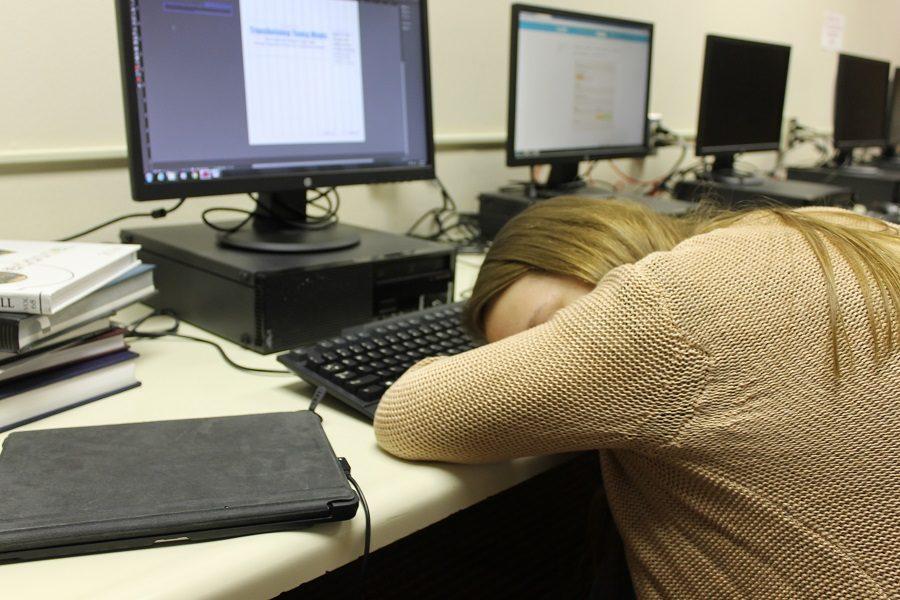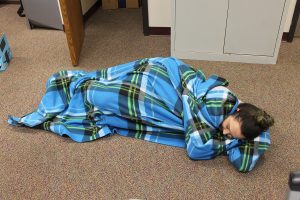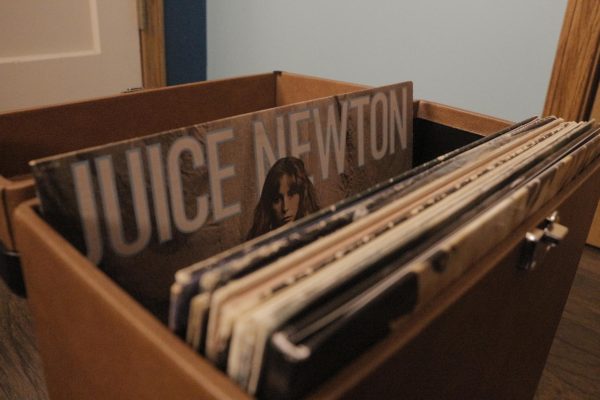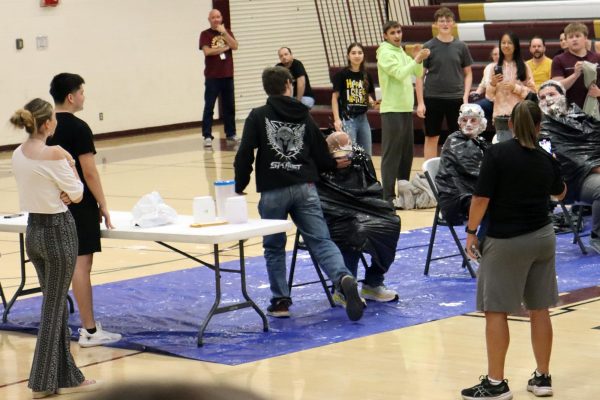Insomnia impacts student lifestyles
Senior Joe Factor’s daily routine is much like any other student’s- he does his homework, eats dinner and gets ready to go to bed and just like other students. However, sleep is a precious thing for Factor. Unlike other students, Factor can’t seem to get any rest and has been diagnosed with insomnia.
“Imagine being permanently exhausted for the entirety of your day and night,” Factor said. “Whenever I do sleep, it feels surreal.”
Insomnia is a medical condition that is detrimental to one’s health. It is the inability to sleep or stay asleep even when the person has the ability to.
According to Bryan Noone, a manager of the Sleep and Neurodiagnostic Institute at Hays Med, around 20 percent of teens suffer the same as Factor. Even teenagers who don’t suffer from insomnia aren’t getting enough sleep.
“Teenagers should be getting roughly nine hours of sleep,” Noone said. “I have spoken to Hays High psychology classes and most some students get is five hours.”
Noone says most teenagers experience delayed sleep phase. It feels more natural to go to sleep at 2 a.m. and wake up at 10 a.m.
“The American Academy of Pediatrics recommends that schools don’t start until at least 8:30,” Noone said. “This would be the smartest decision to help high school students compensate for this natural shift in their sleeping pattern.”
Chronically sleep-deprived teens are more likely to suffer from anxiety, depression, obesity and physical ailments. As well as all of those, sleep deprived teens are more likely to get into car accidents.
“A lot of not getting enough sleep has changed by life,” Factor said. “It made me more stressed and my life style was completely different.”
Factor also has to be more scheduled and strict when it comes to his routine. For a while he had to turn off all of his electronics at 8 and in bed by 9.
“Even with that routine, I wasn’t actually falling asleep until midnight,” Factor said. “For a long time I was using prescription sleeping-aid but that didn’t really help either.”
Noone said that the methods Factor uses are very common. The method is called sleep hygiene and some of it is also changing a few sleeping habits.
“Some things that do help are no caffeinated drinks after lunch, no heavy exercise in the evening, turning off all electronics, keeping rooms dark, and no napping during the day,” Noone said. “Also, make sure to get about 20 minutes of aerobic exercise a day.”
Another treatment is cognitive behavioral treatment for insomnia. This treatment helps improve sleep quality and initiation. It helps those diagnosed recognize the thoughts and behaviors keeping them from sleep.
“A common complaint I hear is that people can’t get their mind to shut down,” Noone said. “Stress reduction and relaxing techniques can help solve that problem.”
It is essential that students get enough sleep. Insomnia can lead to even more illnesses and stress. Factor said he has learned to cope with it and tries to understand how it affects him.
“My advice is don’t let it define you and seek treatment,” Factor said. “It helps more than you can imagine.”
18agonzalez@usd489.com

This is Amiyah Gonzalez. She is a senior and this is her third year on the newspaper staff. She is involved in orchestra, leadership team, musical, spring...











